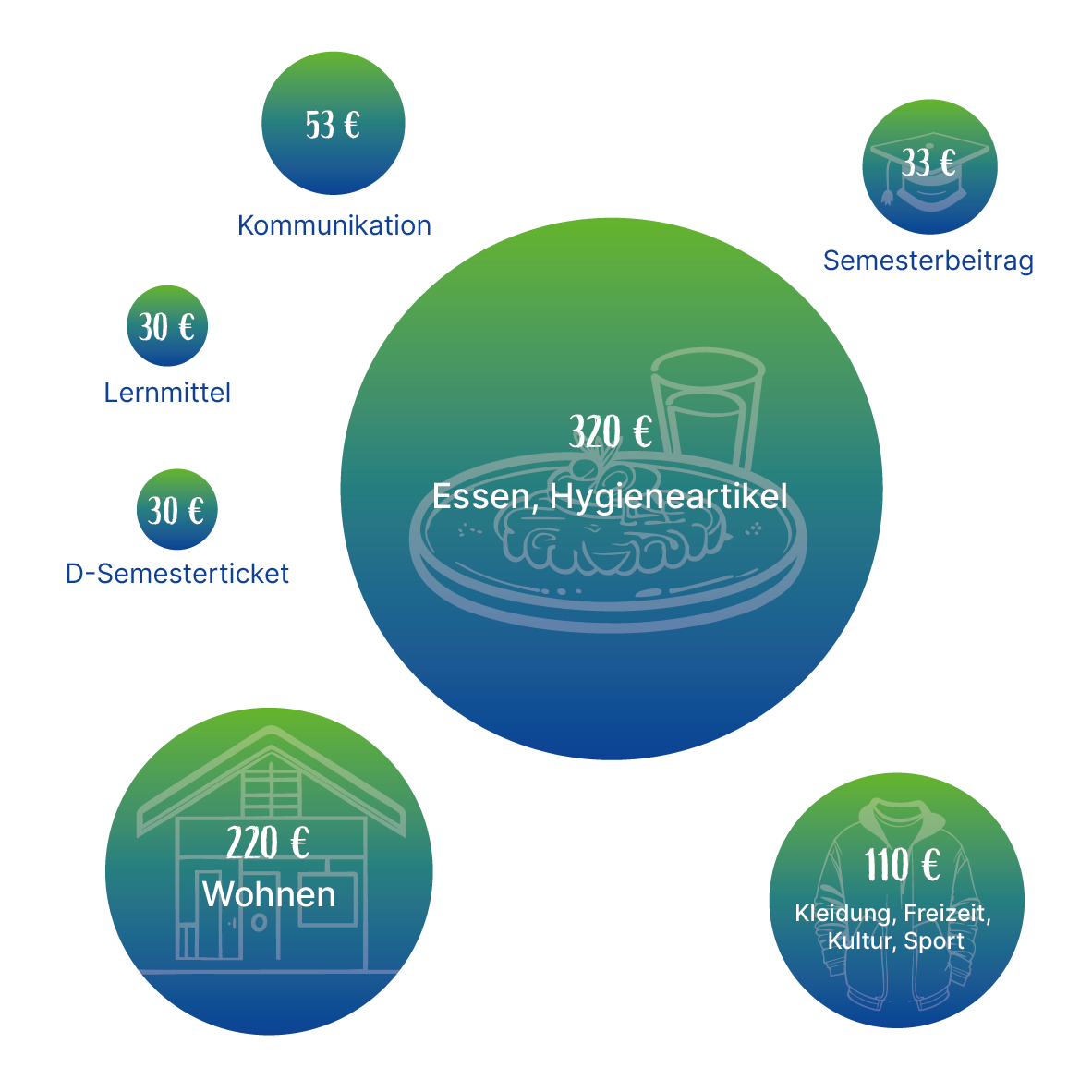Students who live at the university generally do not need a car. Public transport in the north-west is provided at all universities by the semester ticket (or the Deutschland-Ticket for students), which is paid for with the enrolment fee (cost share e.g.: € 184.18 at the University of Oldenburg, € 96.55 HS Emden/Leer, as of winter semester 2024/25). In individual cases, the costs of the ticket can be reimbursed upon application after enrolment. The general student committees of the respective university are responsible for this: AStA of the university, AStA of Jade University, AStA of Emden/Leer University of Applied Sciences
Especially at the beginning of the first degree programme, the question arises as to the costs that will be incurred during the course of your studies. There are expenses that are incurred by almost all students: These include the semester fee and costs for rent, depending on the standard of accommodation. However, some costs vary depending on age and length of study, such as long-term study fees or health insurance premiums.
Studying in the North West can be quite affordable. If you can get a place in our halls of residence, use the semester ticket instead of a car and have hardly any health insurance costs due to family insurance, you can get by on around 820 euros a month. The exemplary list is of course based on the favourable rent and thriftiness in normal living costs. You will probably have to pay more for rent on the open market, especially in Oldenburg. In any case, you should plan a buffer for unexpected or one-off expenses.


